U.S.-China Strategic Competition
Take an in-depth look at the new era of strategic competition between the United States and China.
Fall 2020 – Spring 2021
Washington, DC
Three decades after the fall of the Berlin Wall, our leaders increasingly realize that our power, position, and principles are under assault from adversaries we had once hoped to transform into friends. In 2020-2021, the Security & Strategy Seminar will consist of three separate, simultaneous year-long seminars, each focused on a different strategic challenger to the United States: the People’s Republic of China, Vladimir Putin’s Russia, and the Islamic Republic of Iran. Although the nature of the competition and relevant factors differ for each adversary, each seminar’s framing questions will remain the same:
What are America’s goals, and how do we achieve them?
What does the strategic competition look like? What are we competing over?
What do we need to understand about our adversary in order to achieve our goals?
Taught by leading scholars in the field, each SSS will consist of 15 evening sessions that meet from September-May and will afford participating fellows an opportunity to gain a breadth of knowledge on critical subjects, forge relationships with senior scholars and practitioners, sharpen analytical frameworks through written and oral arguments, and build a cohort with their peers. Fellows will be responsible for around 50 pages of reading for each session and will be required to write two short essays over the course of the program. Each seminar will meet on the same designated day of the week from 6:00 pm-8:00 pm ET. If the ongoing public health crisis prevents in-person gatherings, SSS will operate via virtual platforms.
These seminars are held in conjunction with the Alexander Hamilton Society and the Public Interest Fellowship.
Stephen Rosen on Strategic Competition
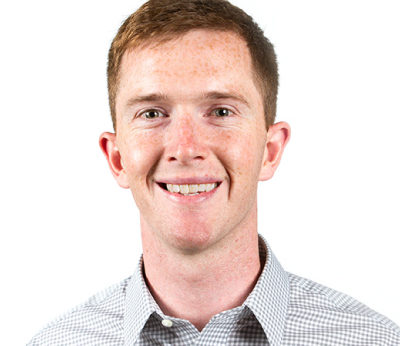

Jones Day
U.S. Marine Corps | Clerk, U.S. Supreme Court
University of Notre Dame, Yale Law School
Captain Joe Falvey completed two tours in Afghanistan during his five years with the U.S. Marine Corps. Joe clerked for U.S. Supreme Court Chief Justice John Roberts. His background and knowledge made him a great fit for the 2014 Hertog seminar on “Lessons of the Iraq War,” led by Vance Serchuk, a former senior national security advisor to Senator Joseph Lieberman.
My younger brother [Michael Falvey] participated in the Political Studies Program so I first heard about the Foundation from him. Then, the Yale Law Veterans group sent out an email to our incoming class and let us know about the Advanced Institutes. “The Lessons of the Iraq War” seemed like a great opportunity, especially for people coming from the military.
During tours for the Marines in Afghanistan, I gained a lot of very specific on-the-ground knowledge about America’s war strategy and plans. But the Institute gave me the opportunity to step back, look at the big picture, and think about the decisions on a presidential or strategic level that impact the guys on the ground.
The viewpoints of the instructor, Vance Serchuk, introduced an interesting take on what’s happening in our government and how it relates to our foreign policy and military. He shared his first-hand experience about how the different branches of government are interacting, how we’re driving the war effort, and how we’re changing our strategy. In the future, as a lawyer I’m interested in working in government so Vance’s perspective was extremely valuable.
One of the best intellectual benefits was the broadness of the views that were shared. We not only had world-class speakers from the American side of things like General [David] Petraeus and Senator [John] McCain, but also had the opportunity to interact with people like Professor Bilal Wahab from the American University in Iraq. Hearing Professor Wahab’s take on the war as a Kurdish citizen was fascinating, and he’s someone I never would have come across if not for Hertog.
The students included both people going into military and those involved in nonprofit and private sector work. The breadth of the experiences present in the classroom was extremely vital to the success of the course. It’s always great to get people together who won’t necessarily agree on everything. My peers challenged my assumptions, and hopefully, I challenged some of theirs.
I had a great experience; everything was very professional, very organized. Most of all, the course was brimming with ideas. Vance not only had personal knowledge of the events and the major decisions of the Iraq War, but he also had the desire and the ability to teach us. He put in an incredible amount of effort, and it definitely showed in how well the Institute ran.
Absolutely. The military is a subject that society at large doesn’t have a ton of knowledge about. There’s something of a civilian-military divide where it’s hard for civilians to glean information about the inner workings of the military, and colleges increasingly don’t offer comprehensive classes on the military or military history. So an Institute like that where you’re taking a very deep dive and exploring the detailed history of a specific event like the Iraq War is essential. Without looking at those hard facts, we don’t have the information we need to make good decisions as a country.
My interests include government and foreign policy, but I mostly just hope that whatever job I get will allow me to serve the country. Service is what drew me to the military, and I hope to find work that enables me to continue doing that.
Captain Joe Falvey completed two tours in Afghanistan during his five years with the U.S. Marine Corps. Joe clerked for U.S. Supreme Court Chief Justice John Roberts. His background and knowledge made him a great fit for the 2014 Hertog seminar on “Lessons of the Iraq War,” led by Vance Serchuk, a former senior national security advisor to Senator Joseph Lieberman.
“During tours for the Marines in Afghanistan, I gained a lot of very specific on-the-ground knowledge about America’s war strategy and plans. But Hertog gave me the opportunity to step back, look at the big picture, and think about the decisions on a presidential or strategic level that impact the guys on the ground.”
Vance Serchuk
Vance Serchuk is Executive Director of the KKR Global Institute and an Adjunct Senior Fellow at the Center for a New American Security. Prior to joining KKR, Mr. Serchuk served for six years as the senior national security advisor to Senator Joseph Lieberman (I-Connecticut).

Vance Serchuk
Vance Serchuk is Executive Director of the KKR Global Institute and an Adjunct Senior Fellow at the Center for a New American Security. Prior to joining KKR, Mr. Serchuk served for six years as the senior national security advisor to Senator Joseph Lieberman (I-Connecticut).
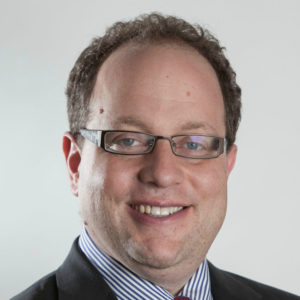
Daniel Blumenthal
Dan Blumenthal is a senior fellow at the American Enterprise Institute, where he focuses on East Asian security issues and Sino-American relations. Mr. Blumenthal has served in and advised the US government on China issues for more than a decade.
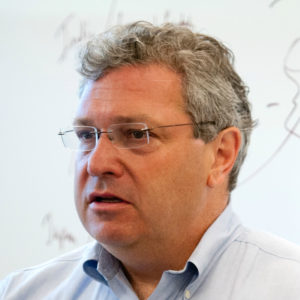
Robert Kagan
Robert Kagan is a senior fellow with the Project on International Order and Strategy in the Foreign Policy program at the Brookings Institution. He is a contributing columnist at The Washington Post. His most recent book is The New York Times bestseller, The World America Made.
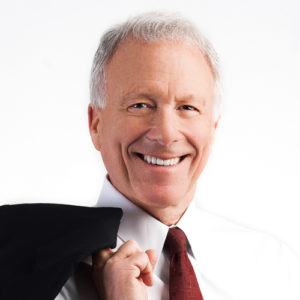
Lewis Libby
Lewis “Scooter” Libby is a distinguished fellow at the Foundation for Defense of Democracies. He has held several high level positions in the federal government related to his current work on national security and homeland security affairs. This included roughly a dozen years working in the White House, the U.S. Department of Defense, and the U.S. Department of State.
Paul Wolfowitz
Paul Wolfowitz is a scholar at the American Enterprise Institute. He spent more than three decades in public service and higher education. Most recently, he served as president of the World Bank and deputy secretary of defense.
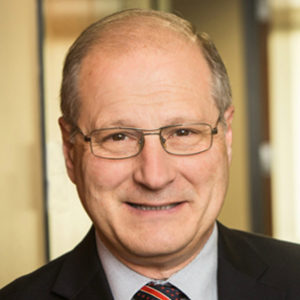
Eric S. Edelman
Ambassador Eric S. Edelman is Counselor at the Center for Strategic and Budgetary Assessments. He retired as a career minister from the U.S. Foreign Service on May 1, 2009. He has served in senior positions at the Departments of State and Defense as well as the White House, where he led organizations providing analysis, strategy, policy development, security services, trade advocacy, public outreach, citizen services, and congressional relations.